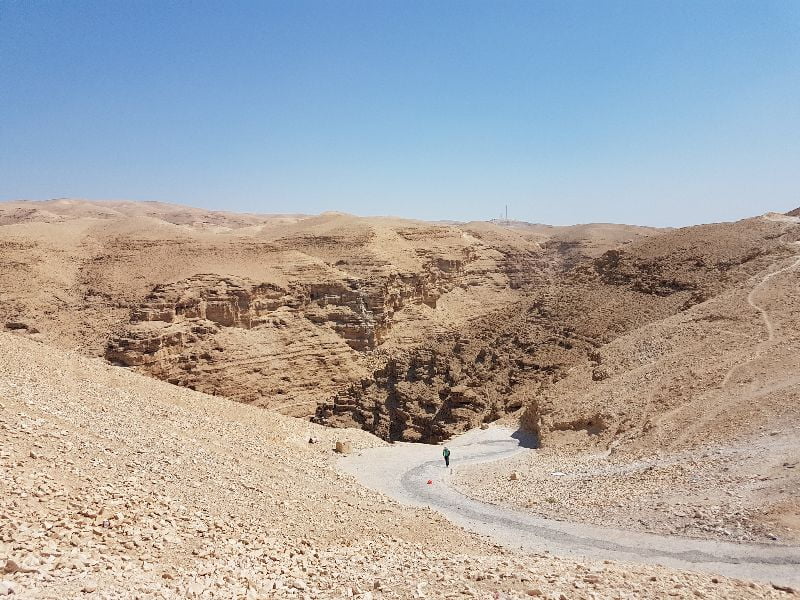Friend or Foe?
Friend or Foe?
From Interfaith Journeys – The Blog of Sr Isabel Smyth SND
“It was the best of times, it was the worst of times, it was the age of wisdom, it was the age of foolishness”; so begins Charles Dicken’s ‘A Tale of Two Cities’. It feels a bit like that today as the world grapples with a deadly virus that is causing havoc to a way of life that we’ve come to take for granted. We see businesses closing, people fearing for their livelihood, families cooped up together, not being able to celebrate with their wider family the great feasts of Easter and Pesach that are taking place this week. Others stranded far from home unable to get flights back from abroad. Some glad to be safe at home but lonely and fearful, not being able to cope while others are afraid to be at home as domestic abuse incidents increase. Some are wise and keep to government guidelines set out for our safety, others are foolish and break them, some are generous in helping others while others stockpile out of fear and insecurity. And for many families there is the pain of bereavement made worse by their inability to accompany their loved ones into death or be at their funerals.
The world is in crisis and it is a global crisis with shows us so clearly how interconnected we all are and vulnerable to hidden threats such as Covid19. It’s not the first virus to cause havoc. We’ve had viruses such as SARS and Ebola before and we’ve been warned that a pandemic was likely at some point. And yet it seems to have taken us by surprise. Yes, we are in crisis. We are at a critical point, a turning point for our race if we are able to learn the lessons that this virus affords us. Many of us talk about getting back to normal, back to business as usual. But it is business as usual that has in a way introduced this virus into our societies.
Covid- 19 may have begun in Wuhan, in the ‘wet’ markets that sell live rare and exotic animals and have little concern for health and safety. But this is only one instance of how we as a race have not lived in harmony with nature. Before corona there was real talk of our extinction if we didn’t heed the instances of climate change. Now the universe has shown us how well it will survive without us. There are blue skies in Beijing, clear canals in Venice and the ozone layer is healing. Scientists tell us that the universe will always seek equilibrium and it’s sobering to see it doing that without our interference. And what if we don’t heed this warning? Well the effects of climate change could be even more deadly than the virus we’re tackling at present.
Joanna Macy talks of three approaches to our world – business as usual, the Great Unravelling and the Great Turning. We know business as usual will not work nor will we in the west be able to return to our materialistic and consumerist cultures which often sustained themselves at the expense of those in developing countries. We have known for some time that this way of life is unsustainable. We see clearly the Great Unravelling as the death toll rises, as equipment and protective clothing are in short supply, as businesses and companies go into liquidation, as our usual way of socialising is disrupted, as we are separated from our families etc – an unravelling that was already happening but not heeded and in some instances not even noticed.
But corona also shows us that in the midst of this Great Unravelling is the Great Turning. We have so many examples of people volunteering to help, nurses and doctors exhausting themselves in caring for patients, emergency hospitals being built, neighbours showing a concern and looking out for one another, contacting friends and family by telephone and through the internet, finding ways of working from home, enjoying time with our children. All this shows that when the chips are down we care about one another; that our common humanity is core and that together we can respond to a common threat; that in the face of a common crisis other identities and rivalries take second place. In places like Israel and Palestine there has even been a secession of hostilities replaced by cooperation in tackling the virus.
We have discovered a new way of working. Will we learn its lessons? When all this is over will we remember our common humanity and seek to dialogue rather than wage war, will we recognise that material possessions are not what matter in life and simplify our way of living, will we transform polluting industries and have a care for the environment in future economic growth, will we use global relations for cooperation rather than competition? The future is ours, what will we do with it?


